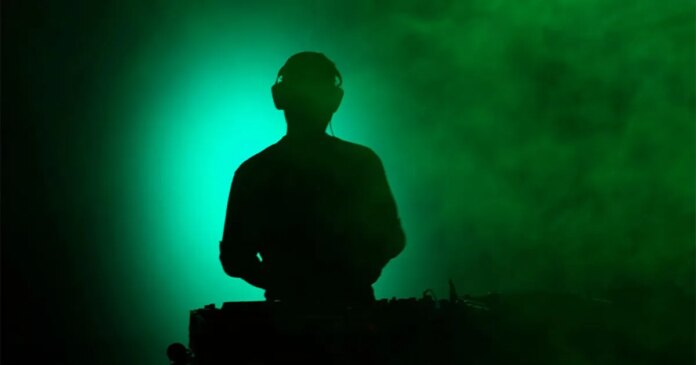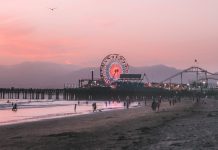Tune in! If you love music, you have to visit these 10 cities
There’s a plethora of different kinds of music out there in the world. Music is one of the supreme forms of human expression, after all. Author Robert Fripp called it “the wine that fills the cup of silence”, and as an advocate of both music and wine, I can strongly vouch for this.
Music is so deeply rooted in the human psyche that musical systems developed independently of each other in civilizations that wouldn’t come into contact for millennia. This is why, to Western ears, the microtonal shifts and polyrhythms of Eastern music can sound densely chaotic; meanwhile, the 12-note scale with which Western music is composed can seem arbitrarily childlike if you’re not used to it.
Initially, you’ll enjoy the sounds that have been hard-wired into you by your culture, but rich knowledge and enjoyment can come from shifting your musical perspective. If ever you needed another reason to book a getaway, discover the best beats and memorable melodies at our top destinations for music lovers.
Dresden, Germany
Germany has, for centuries, been one of Europe’s most fertile breeding grounds for music. This is evident from the 1600s and Johann Sebastian Bach’s attempts to write organ music that didn’t offend religious authorities that still thought certain chord combinations to be blasphemous, through the bombastic aggression of Beethoven; the fashion for lilting waltzes of the 19th century, all the way to Kraftwerk’s invention of electronic music, plus Krautrock, 90s nu-punk, and… um… the Scorpions. There’s a lot to live up to.
Today, the Germans are still doing music well. Berlin is the obvious example — a city practically centered around a manic clubbing culture — but, for my money, Dresden is where it’s at. The Neustadt, north of the river, is a grid of streets built hastily in the 1960s after the city was flattened in World War II, and its two main streets run parallel for about five blocks.
These five blocks must be home to one of Europe’s densest collections of bars, music venues, record stores, second-hand bookshops and art spaces. Seriously, it’s bar, bar, record store, gig venue, bar, bookshop, coffee shop, bar, gig venue, rinse and repeat.
If you were a band, you could do a tour of Dresden. I’m sure some do. Every available wall is covered in either street art or posters advertising upcoming gigs fronted by bands from all over Europe. Nobody really big, just people and equipment in a van trailing around the continent playing music. It’s brilliant.
Osaka, Japan
The only city in Japan that still has an entire neighborhood that’s a designated slum, Osaka is kind of rough around the edges, and that feeling comes across in its music. On the surface, it’s a modern, shiny, 21st-century city, but away from the glass and chrome, Osaka is punk, metal and psychedelia, its inhabitants walking with the kind of aggressive swagger that would make Liam Gallagher cross the street.
It prides itself on having less of a music scene and more of a music community, with artists supporting and promoting each other at gigs and at parties all over the city.
In fact, locals who are active in the community say that this contributes even more to the punk ethos of the city. Gigs can take place in back rooms of bars, independent theaters or even – if push comes to shove – in the artists’ rehearsal space. If you see a band you like, start keeping up with them and soon enough you’ll be introduced to similar sounds.
As with any musically-minded city, Osaka, like Dresden, has a multitude of second-hand record shops. These, too, embody a very Britain-in-the-late-70s ethos, often having more than one string to its bow. You’ll find them in the small central area of Nishishinsaibashi, immediately north of the excitement at the city’s iconic Dōtonbori canal.
Pune, India
Dance music is big in India, and the city of Pune is at the forefront. The place has a number of large educational establishments, meaning a healthy student population, which in turn packs out the city’s music venues night after night.
It’s become something of a staple for both up-and-coming and established DJs when touring, and you’ll be able to choose from the energy of a big, sweaty club to chilled-out sets in rooftop cocktail bars.
Aside from the electronic beats, Pune has a range of places that make you seem like you could almost be in Austin in the US; a variety of smaller venues (mainly bars with a corner given over to a tiny stage) at which you can enjoy solo or small group performances while you eat bar snacks and drink beer.
There’s also a bunch of small, underground jazz clubs which sway late into the night to the smoky sounds of the 30s and 40s. Hmm, nice.
Salvador, Brazil
Okay, so Brazilians like to party. We know this. Rio de Janeiro and São Paulo are known around the world for their carnivals and festivals, but what about other places in Brazil? Well, I’m glad you asked.
Salvador is Brazil’s oldest city, founded by the Portuguese in 1549 and was the nation’s first capital. It has 80 kilometers of beaches within the city, ranging from calm inlets for swimming and bathing, to those facing the open sea that the locals use for surfing. It’s also the home of the martial arts and dance mix called capoeira, which is practiced both indoors and outdoors throughout the city.
But what of the music? Well, the state of Bahia — of which Salvador is the capital — is the most African-influenced area of the country, and today much of the music combines elements of dub, early hip-hop and deep reggae with the heavy, bassy drums and rhythms of West Africa.
This mixture gives rise to the Poetry of Bahia, a concept based around both a cultural manifesto rooted deep within the psyche, but with a progressive, outward-looking vibe. Combine this with an almost stereotypical energy, and you’ve got the recipe for something genuinely special.
New Orleans, US
The Big Easy. Jazz, right? Naturellement, and you’d have to be a fool to visit without experiencing some of the music that is so central to the city. From the loose, bouncy brass-led street bands to the bleak, drug-fuelled introspection and darkness of the avant-garde in the 50s and 60s, it runs the gamut of emotional states. Indeed, as the hometown of Fats Domino, Louis Armstrong and the great Dr. John, it could have that as its legacy and no-one would question it any further.
But what about some of the other sides to its character? A lot of stuff in New Orleans still, to this day, takes its influence from Cuban music. At the start of the 20th century, Cuban musicians were taking the ferry across the Gulf of Mexico from Havana to New Orleans to play, and Americans, in return, were doing the same. Street life, music and food (three very important things, I’m sure you’ll agree), still seem intertwined in both places.
In the mid-late 80s, a new type of music emerged in the form of rap, and in the late 80s and throughout the 90s, New Orleans had a growing influence on the hip-hop and rap communities, with artists like Lil’ Wayne, Mystikal and Birdman emerging as new stars. It’s still a massive part of the sound of the city.
But we can’t leave Louisiana without touching on zydeco. I’ve got rather a soft spot for this form of folk music, heavily influenced by bouncy cajun rhythms, a rough patois of French and liberal sprinklings of accordion. It’s the sound of the multicultural gumbo which makes up New Orleans.
Leeds, UK
There were a number of places I had on my shortlist for somewhere to go in the UK — Manchester, Bristol and Glasgow were three — but I chose Leeds because it’s maybe not as well-known. It was the location for one of the greatest live album recordings ever made (The Who Live at Leeds), and it is also just a damn fine city. Industrial grandeur mixed with some nice parks, modern developments and some cracking pubs gives it a feeling of being nicely lived-in.
A number of bands emerged from the Leeds art scene in the 1970s and 80s, among them Gang of Four and the Wedding Present, as well as the mid-2000s indie explosion leading to the popularity of the good (Kaiser Chiefs, named after Leeds United’s defender Lucas Radebe’s former club) and the not-so-good (the fairly horrendous Pigeon Detectives).
Venue-wise, there’s something for everyone. The First Direct Arena has hosted massive artists like Bruce Springsteen, but we’re concentrating more on the smaller places.
The O2 Academy is like every other O2 Academy in the country (mid-sized bands, slightly grubby, decent enough) and, although the legendary Cockpit has closed down and is much missed, the University of Leeds student union still stages gigs, and places like The Wardrobe and Oporto are gaining credence too. In short, just wander around town and you’re bound to stumble across something.
Kingston, Jamaica
The home of reggae is an obvious place to head when doing any list of influential and interesting places to visit for the music. Just watching Jeremy Marre’s documentary Roots Rock Reggae about the island’s flashpoint year of 1977 and the use of music as a tool for social change gives but the merest insight as to how deeply music is entrenched in the island’s culture.
Oddly though, despite music being such a big part of life, going out in the evening, you’re more likely to hear DJs spinning tracks on record than you are to see a live band. Sweaty dance clubs are where it’s at.
The Asylum club, for example, might have contemporary reggae one night, then a night of 60s ska favorites, then a free-for-all karaoke evening. Either way, you’ll never be lost. There are fliers and posters everywhere, and bar staff are normally a good source of what’s going on in their area on any given evening.
Of course, the music has traveled well, too. There’s almost no-one in the world that couldn’t identify Bob Marley, and the sounds of ska gave a voice to the disaffected and racially abused kids of post-war immigrants to the UK in the 1980s.
You only have to look at the political messages of bands like The Specials and The Selecter to see that what Jamaica gave the world has — and continues to have — a far-reaching and important influence.
Addis Ababa, Ethiopia
Spread across its mountains, plains and deserts, there are over 80 different ethnic groups in Ethiopia. Addis Ababa, as the capital of a massively diverse land, is where all the culture comes together.
The traditional musician of Ethiopia is known as an azmari, a singer similar to a European bard or troubadour, who performs folk songs while adding their own lyrical twists to relate to relevant events or goings-on of the day.
You’ll often hear them playing in tea houses, accompanying themselves on instruments such as the masenqo (a type of one-stringed, bowed instrument) or the krar, a six-stringed instrument like a lyre.
The moment that really changed the musical direction of the country was when Haile Selassie visited Jerusalem in 1924. At the Cathedral of St. James (a 12th-century church in the Armenian quarter of the city) he was greeted by a brass jazz band comprised entirely of Armenian orphans.
Very much taken with both the kids and the music, he adopted all 40 of them, and arranged for their musical education to continue in Ethiopia. From that moment, jazz took off in a big way across Addis Ababa, all the while done in a uniquely Ethiopian style.
That’s kind of the story of Ethiopian music in a nutshell, really. Sure, rock, hip-hop and electro have started to dominate the contemporary music scene but, being proud not just of being Ethiopian, but also proud of your individual cultural heritage, almost everyone has put a unique twist on these newer sounds.
In fact, Ethio-rock is a genre particular to the country, as is the fashion for hip-hop sung in Amharic, Ethiopia’s everyday language. As indeed it should be.
Bologna, Italy
Bologna, as every quiz-lover knows, is home to the oldest university in the world, founded in 1088. It’s still going strong today, and it helps the city to become what it is; namely, something a little bit unusual in Italy.
It’s becoming a place where young people — possibly influenced by a number of students from other countries — are moving away from the homeliness, conservatism and cooking of their parents’ houses and becoming brave enough to strike out on their own, adopting less typically Italian values.
LGBTQ+ culture is generally more widely accepted in Bologna than elsewhere in the country, and the alternative art and music scene has a firm foothold. Music is used as a tool to fight racism and promote equality and peace. This is a good thing.
Away from the student scene, Bologna has been famed for centuries as a place where some of the greatest and grandest spectacles of classical music, opera and ballet have been performed. Gioachino Rossini made it his home.
On top of that, it’s also home to a buzzing international gig scene; a number of artists now see Bologna as an essential stop on a tour of Europe. Just a quick glance at a calendar for the next few months reveals long-established artists such as Iron Maiden, My Chemical Romance and The Chemical Brothers.
Nashville, US
Nashville is ace, and it’s been talked about endlessly as one of the music capitals of the US. It’s a well-deserved reputation, of course; country, bluegrass, blues, soul, rock and roll, alt-rock and much, much more have sprung from its many bars, gig venues and busking spots around the city. So, why not read more about it in this article?
Do you want more travel articles? Visit Kiwi.com Stories.










